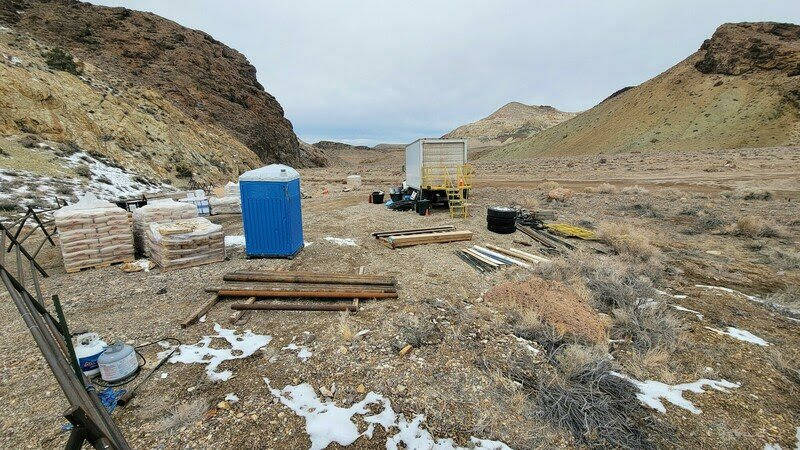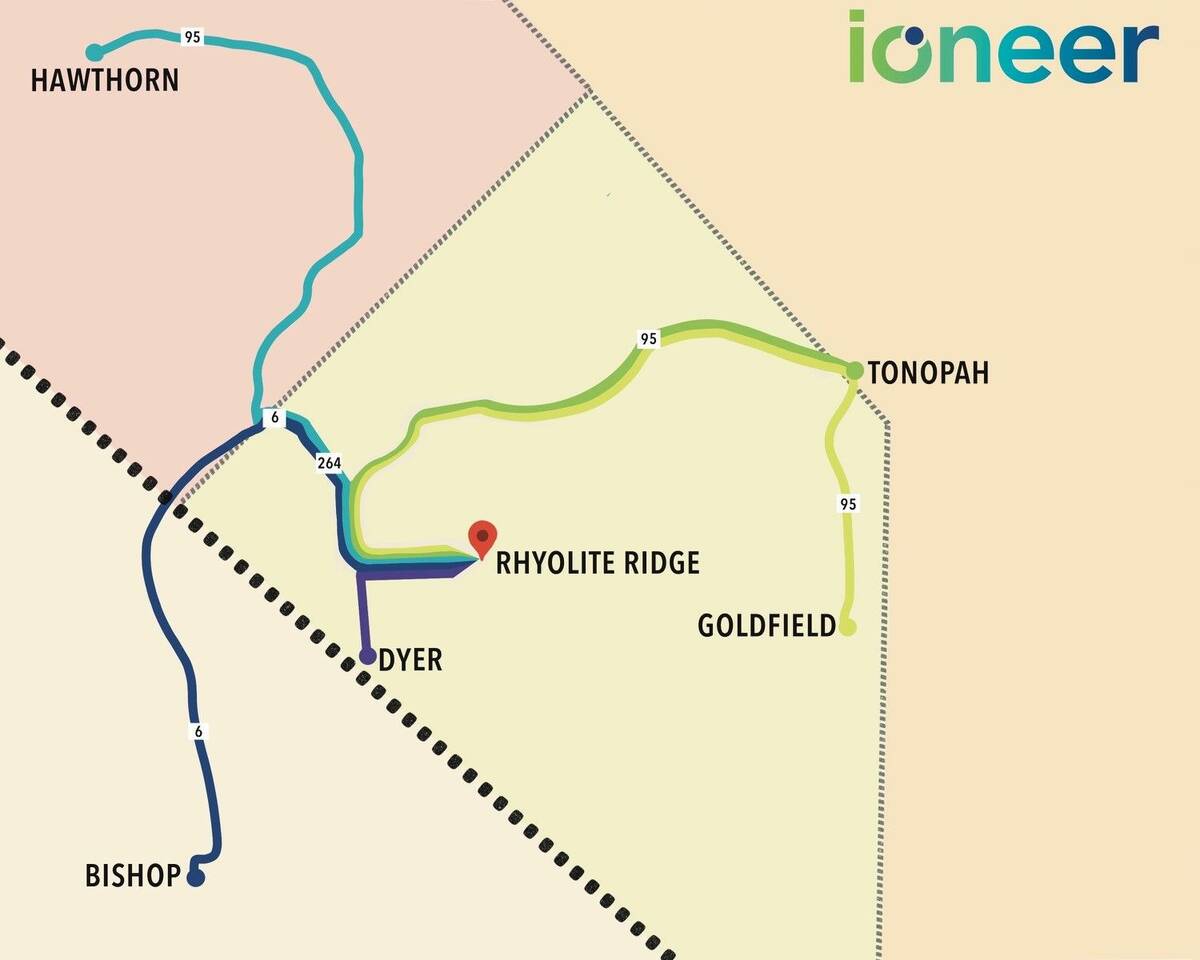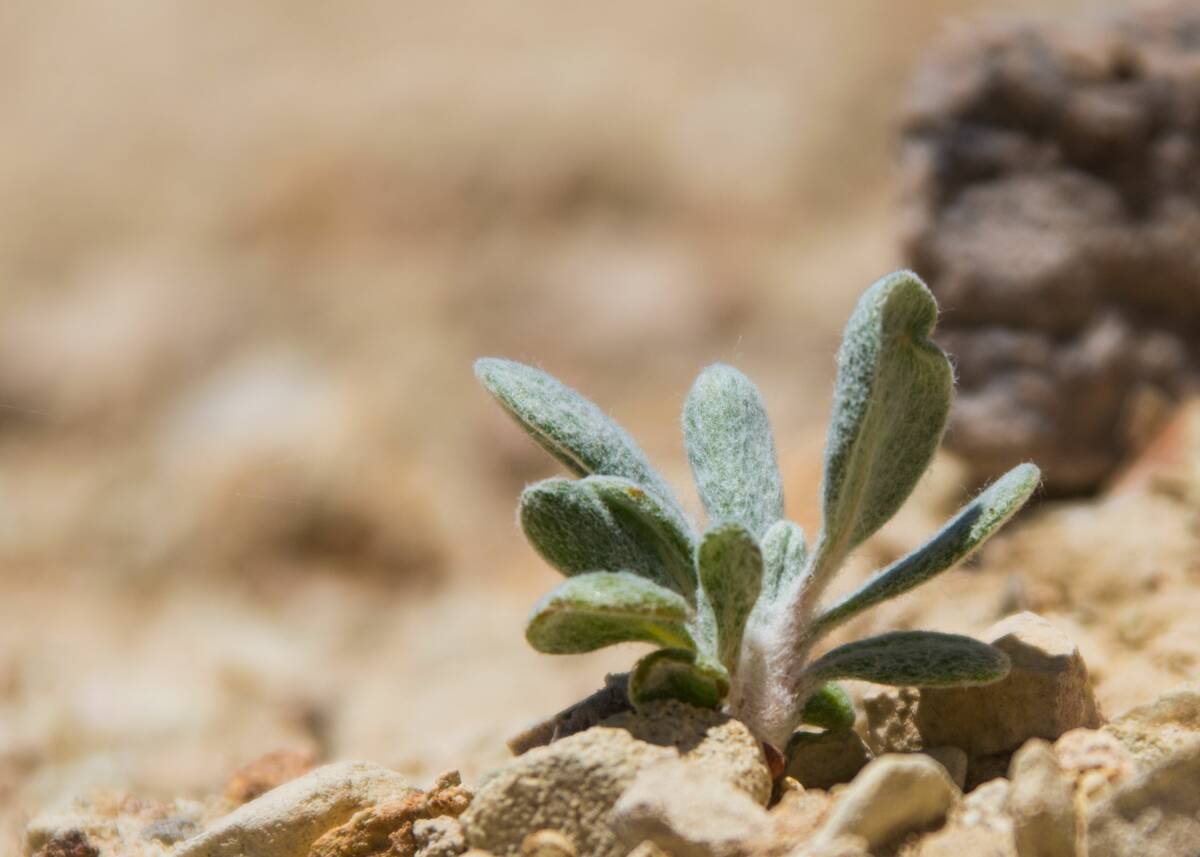Ruling: Miners violated BLM regulations near site of protected flower
U.S. Bureau of Land Management officials say Australia-based mining company Ioneer Ltd. has violated regulations near the habitat of an endangered flower in rural Esmeralda County.
Conservationists from the Center for Biological Diversity were monitoring the site where Tiehm’s buckwheat grows on Dec. 26, 2022, when they reportedly discovered a staging area for Ioneer’s drilling operations with a truck, water tanks and materials near the newly protected critical habitat for Tiehm’s buckwheat.
“These rare wildflowers need the highest level of care to ensure they don’t slide into extinction, which is why Tiehm’s buckwheat and its critical habitat are protected under the Endangered Species Act,” said Patrick Donnelly, Great Basin director at the Center. “The BLM did the right thing here to hold Ioneer accountable.”
Ioneer has 14 days to respond to the notice and could be fined for its unauthorized use of the land around the plant.
Mining officials respond
Ioneer officials on Wednesday acknowleded the trespassing notice and told the Pahrump Valley Times that the placement and storage of some of its equipment along Cave Springs Road in November 2022 was not authorized under the permit issued by the BLM.
What happened was a violation of BLM regulatory requirements, a spokesperson for the company said, but “no Tiehm’s buckwheat was disturbed. The nearest plants were about 300 yards from the equipment, the spokesperson said.
“We take full responsibility for the breach and sincerely regret the inadvertent noncompliance with the permit,” Ioneer Managing Director Bernard Rowe said. “Since day one, Ioneer has instructed our staff and contractors about the need to observe all permit conditions. We are investigating exactly how this failure occurred, and we will take action to assure total compliance in the future.”
Public comment extended
BLM officials have extended the public comment period until Feb. 3 for the planned lithium-mining project, located about 40 miles southwest of Tonopah.
Those who support the project cite economic benefits and its potential to create a massive green-energy market in the U.S., while opponents say the mining operation will threaten the surrounding desert environment.
In response to years of advocacy and litigation from conservationists, Tiehm’s buckwheat was listed under the Endangered Species Act in December 2022. It faces the threat of extinction from Ioneer’s proposed Rhyolite Ridge Mine, according to conservationists.
“The mine at Rhyolite Ridge is not a foregone conclusion. The BLM and all parties are obligated to rigorously adhere to the Endangered Species Act and protect Tiehm’s buckwheat,” said Donnelly. “There’s been a pattern of neglect and abuse of this beautiful little desert flower. I’m grateful the BLM took this action, and I’m hoping it’s the beginning of a new pattern of respect for this endangered species.”
The Center also recently sent the BLM a notice of intent to sue over cattle grazing within Tiehm’s buckwheat’s critical habitat, which conservationists say they have documented causing harm to the plants.
$700M loan approved
On Friday, Australia-based Ioneer Ltd. confirmed it had been approved for a loan of up to $700 million from the U.S. Department of Energy for its Rhyolite Ridge Lithium-Boron Project in Nevada which is expected to create 400-500 construction jobs and 250-300 operating jobs, according to company officials.
The 10-year loan will come with a fixed-interest rate and is the first of its kind under the DOE’s Advanced Technology Vehicles Manufacturing Loan Program for mineral extraction. It signifies the Biden administration’s efforts to build a critical industry here that will help to reduce U.S. reliance on Chinese minerals, while curbing carbon emissions and helping to meet ambitious climate-change goals.
Ioneer officials say the mine will generate more than a half a billion to $1.3 billion in tax revenue for the local communities and Nevada over its lifetime.
Rhyolite Ridge is being billed as the “most advanced undeveloped U.S. lithium project” and company officials say it will fuel the country’s future demands for cleaner electric vehicles.
Ioneer officials have said they hope to receive a greenlight to commence construction sometime in the first quarter of 2024. Under a timeline provided by the company, the mine’s production could begin as early as 2026.
Contact Editor Brent Schanding at bschanding@pvtimes.com
This article updates a previous version.
Mail comments to:
Bureau of Land Management
Attention: Rhyolite Ridge Lithium-Boron Project
50 Bastian Road
Battle Mountain, NV, 89820
Comments must be postmarked on or before Feb. 3. For more information, www.therhyoliteridgeproject.com.




















